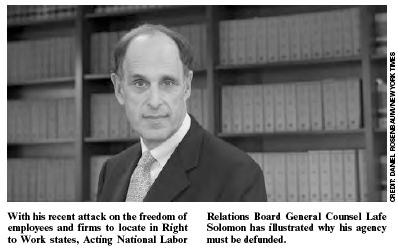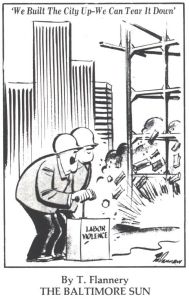"Thanks to my Spider sense, I am freed from those who have deceived me"
Right to Work: Spider Senses Tingling From the Foster's Daily Democrat State Rep. Steve Vaillancourt makes the case for enacting Right to Work: Until the last few weeks, right to work has always been a close call for me. In years past, I have opposed the bill after buying into the argument that one should not benefit from union contracts unless one pays the cost of negotiating them. It was a close call because then as now, I believe the individual should control his or her own life without being coerced into joining anything. Thus, I have always seen a conflict of two principles and have to weigh their importance. This year, with the Daniels amendment, the conflict was removed, and I voted for right to work. It remained a close call, l but the Daniels amendment tipped the scales to supporting the bill. Even with the Daniels amendment gone, I continue to support the right to work bill, and guess what. It's no longer a close call. I'm now a staunch supporter of the bill and urge all my Republican colleagues, especially those who like me have been on the fence in the past, to vote to override the governor's veto. Clearly, unions were using the payment for negotiation argument as nothing more than a red herring. How do I know this? Because, when they refused to budge in their total opposition to the bill, even when the Daniels amendment was added, my Spider senses startled tingling. That's a phrase I use to describe when I begin to realize that I'm being taken for a fool, that those trying to convince me are in fact being less than totally honest.






